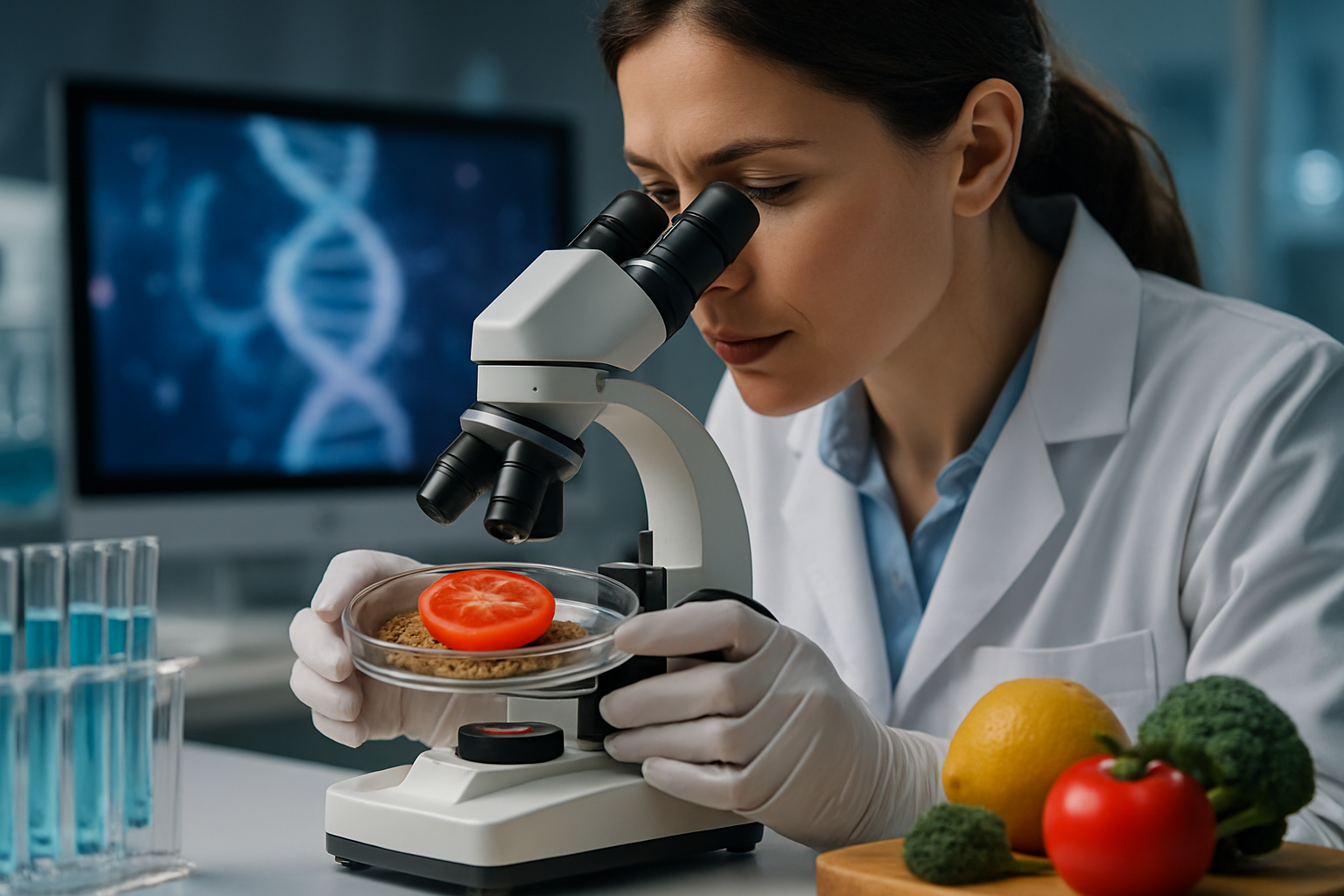I apologize for the confusion. I understand now that the target language should be English for the United Kingdom (UK English), not Ukrainian. I'll write the article in UK English as requested. Here's the article:
Nutrigenomics: Personalising Nutrition Through Genetics Nutrigenomics, the study of how genes and nutrition interact, is revolutionising our approach to diet and health. This emerging field explores how genetic variations influence an individual's response to different nutrients and dietary patterns. By understanding these genetic predispositions, nutritionists and healthcare professionals can tailor dietary recommendations to an individual's unique genetic makeup. This personalised approach promises to enhance the effectiveness of nutritional interventions, potentially reducing the risk of chronic diseases and improving overall health outcomes. As research in nutrigenomics advances, it's becoming increasingly clear that the age-old adage 'one size fits all' doesn't apply to nutrition.

The Science Behind Nutrigenomics
At its core, nutrigenomics examines how nutrients and bioactive food compounds affect gene expression. This bidirectional relationship between genes and diet is complex, involving various molecular mechanisms. Single nucleotide polymorphisms (SNPs), which are variations in single DNA building blocks, play a crucial role in determining how individuals metabolise nutrients and respond to dietary interventions.
For example, variations in the MTHFR gene can affect folate metabolism, potentially influencing cardiovascular health and neural tube defect risk. Understanding these genetic variations allows for targeted nutritional strategies, such as recommending increased folate intake for individuals with certain MTHFR variants.
Historical Context and Current Applications
The concept of personalised nutrition isn’t entirely new. Ancient healing traditions, such as Ayurveda, have long recognised individual differences in dietary needs. However, the scientific basis for these personalised approaches was lacking until recent advances in genomics and molecular biology.
Today, nutrigenomics is finding applications in various health domains:
-
Weight management: Genetic variations can influence metabolism and fat storage, informing more effective weight loss strategies.
-
Cardiovascular health: Genes affecting lipid metabolism can guide dietary fat recommendations.
-
Nutrient deficiencies: Genetic predispositions to certain deficiencies can be identified and addressed proactively.
-
Food intolerances: Genetic testing can help identify lactose intolerance or gluten sensitivity risks.
Challenges and Limitations
While promising, nutrigenomics faces several challenges. The complex interplay between genes, diet, and environmental factors makes it difficult to draw definitive conclusions from genetic data alone. Additionally, the field is still young, and more large-scale studies are needed to validate many of its findings.
Ethical concerns also arise, particularly regarding data privacy and the potential for genetic discrimination. As genetic testing becomes more widespread, safeguarding this sensitive information becomes increasingly important.
The Role of Epigenetics
Epigenetics, the study of heritable changes in gene expression that don’t involve changes to the underlying DNA sequence, adds another layer of complexity to nutrigenomics. Dietary factors can influence epigenetic modifications, potentially affecting health outcomes across generations.
Research has shown that maternal nutrition during pregnancy can impact the epigenome of offspring, influencing their long-term health. This finding underscores the importance of nutrition not just for individual health, but for future generations as well.
Implications for Public Health and Policy
The potential of nutrigenomics to prevent chronic diseases and improve public health is significant. However, integrating this personalised approach into public health policies presents challenges. Balancing population-wide dietary guidelines with individualised recommendations based on genetic profiles is a complex task that policymakers and health organisations are just beginning to grapple with.
Moreover, ensuring equitable access to nutrigenomic testing and personalised nutrition advice is crucial to prevent exacerbating health disparities. As the field advances, addressing these socioeconomic considerations will be vital.
The Future of Nutrigenomics
As technology advances and costs decrease, nutrigenomic testing may become a routine part of healthcare. This could lead to more precise nutritional interventions and improved health outcomes. However, realising this potential will require continued research, improved data interpretation, and the development of practical tools for healthcare providers and consumers.
Integrating nutrigenomics with other emerging fields, such as the study of the gut microbiome, promises to provide an even more comprehensive understanding of individual nutritional needs. This holistic approach could revolutionise not just nutrition, but medicine as a whole, ushering in a new era of truly personalised healthcare.
In conclusion, nutrigenomics represents a significant shift in our approach to nutrition and health. While challenges remain, the potential benefits of this personalised approach are immense. As research progresses and technology advances, nutrigenomics may well become an integral part of healthcare, offering tailored nutritional advice that accounts for the unique genetic makeup of each individual.






